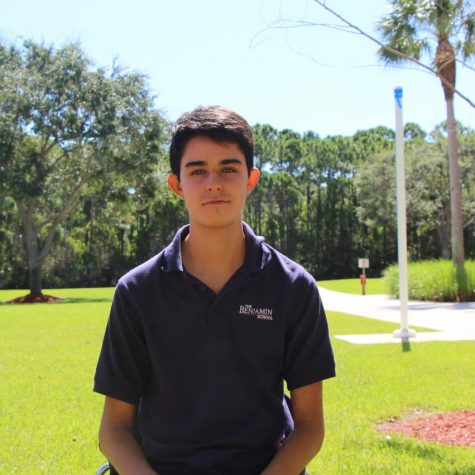Community Block Period Needs to Persist As a Staple of the Schedule
March 28, 2022
80 minutes: the length of time devoted to Community Block every week. While this figure may seem insignificant to some, the benefits students can reap from Community Block, and the implications of keeping the period in place, necessitate its presence in the School’s weekly schedule.
Community Block is a relatively new term used to describe what was once called the “activity period” prior to COVID-19, and it allows for students to meet for clubs or relax in between classes.
In recent months, as health restrictions have come and gone, the designated time for Community Block has shifted from after lunch to after school (2:18-2:58) back to after lunch. These changes have led some to question the necessity of the period, especially if some students were not taking advantage of it for its intended purposes.
Community Block needs to stay. It’s not on the chopping block.
The Florida Council of Independent Schools (FCIS), one of the organizations that accredits Benjamin, mandates that each independent school in Florida have 900 hours of instruction time for grades 4-12. According to a statement made by Dean of Students Mr. Kevin Jacobsen at assembly, if Community Block was done away with, the School would not meet the requisite number of hours. To make up for this deficit, another week of classes would need to be added to the school year.
Certainly 80 minutes a week sounds better than an extra week of school when everyone is already impatiently waiting for summer vacation to begin, right? Community Block needs to stay now so that all members of the Benjamin community can benefit later.
Hard data aside, Community Block gives students who wish to participate in clubs the opportunity to both reinforce and expand upon what they have already learned in class. For instance, one day a student could learn about the merits of a democratic republic in government class and the next apply this knowledge to a real-world debate in Political Club. Community Block allows students to work on their critical thinking skills and develop a more nuanced perspective on an increasingly complex world.
While the main focus of Community Block is for students to engage with their peers through clubs, these 80 weekly minutes provide students who are not participating in a club on a particular day to engage with their peers in a non-academic setting. According to Mental Health America, research indicates that social connection can be beneficial by providing greater happiness, a greater life span, and even better overall health (blood pressure in particular). Community Block provides students with the social interaction–whether it be a game of frisbee on the lawn or chess in the learning commons–they need to grow and thrive in an otherwise demanding environment.
Despite these benefits, some say that not all students are taking advantage of Community Block properly and, as a result, believe it is not serving its purpose of bringing the Benjamin community together. With this in mind, “why keep it?” they ask.
With this logic, shouldn’t the School get rid of everything that doesn’t work perfectly? And should things be taken away to the detriment of those who actually take advantage of them? Certainly not. The right step is not to take away because of the few who misuse the time, but rather to incentivize these people to make better use of it. Benjamin has 57 clubs. There really is something out there for everyone, and most clubs would be happy to have another member. There’s plenty to do outside of clubs as well.
Students: take advantage of Community Block. It has been organized to benefit you, and embracing it makes everyone happier and healthier.



